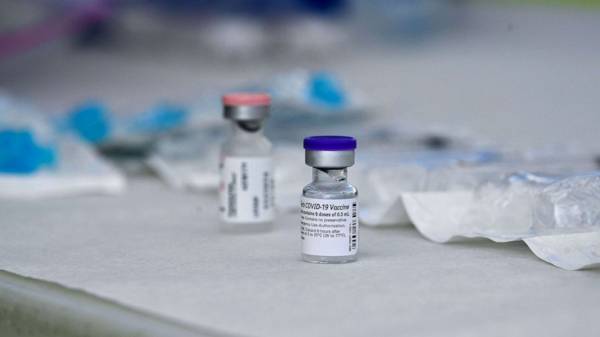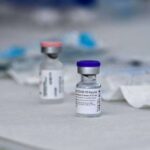
Immunocompromised Americans will be able to get a third shot of either of the mRNA vaccines, Pfizer or Moderna, the U.S. Food and Drug Administration announced late Thursday.
The booster will be targeted specifically for people who did not have an ideal immune response to their initial vaccines, which has proven to be the case for many cancer patients, transplant recipients, people with HIV and people on immunosuppressant drugs.
“The country has entered yet another wave of the COVID-19 pandemic, and the FDA is especially cognizant that immunocompromised people are particularly at risk for severe disease,” acting FDA Commissioner Janet Woodcock said in a statement. “After a thorough review of the available data, the FDA determined that this small, vulnerable group may benefit from a third dose of the Pfizer-BioNTech or Moderna Vaccines.”
The FDA has not yet authorized a booster shot for the general population, a fact reiterated in the agency’s announcement Thursday.
MORE: COVID-19 live updates: Florida, Texas account for nearly 40% of new hospitalizations
“As we’ve previously stated, other individuals who are fully vaccinated are adequately protected and do not need an additional dose of COVID-19 vaccine at this time,” Woodcock continued. “The FDA is actively engaged in a science-based, rigorous process with our federal partners to consider whether an additional dose may be needed in the future.”
The number of people who will be eligible for the third dose is a fraction of those who are fully vaccinated, experts said.
“That encompasses a relatively small proportion of the population, around 3% or so of people would fall into that category,” Dr. Anthony Fauci, chief medical adviser to the White House, said in an interview on ABC’s “Good Morning America” Thursday.


Mary Altaffer/AP, FILEA health care worker fills a syringe with the Pfizer COVID-19 vaccine, July 22, 2021, at the American Museum of Natural History in New York.
Some immunocompromised people even had no immune response to the vaccines — a disappointment considering the high risk they have for getting severely ill from the virus. For example, in one U.S. study, 44% of hospitalized breakthrough cases were immunocompromised people. An Israeli study found it was around 40%.
But Centers for Disease Control and Prevention data shows that a booster shot could increase antibodies in an immunocompromised person by up to 50%.
MORE: FDA poised to authorize 3rd vaccine dose for immune-compromised people: Sources
Dr. Pablo Sanchez, a member of the CDC’s expert advisory panel that will vote Friday on the details of exactly who should get the third dose and when, said he supported at least allowing immunocompromised Americans to get boosters while the CDC continues to monitor the data.
“We really need to help this population out more,” Sanchez said at a CDC meeting in July, when the committee met to discuss the issue.


Callaghan O’hare/ReutersA person receives a COVID-19 vaccine at Floyd’s Family Pharmacy as cases of the coronavirus disease (COVID-19) surge in Ponchatoula, Louisiana, Aug. 5, 2021.
The CDC panel is expected to vote to recommend the third dose when it meets Friday at 11 a.m. and CDC Director Rochelle Walensky will likely sign off after a Friday afternoon vote.
Experts and officials have been clear that this third shot for immunocompromised people is separate from booster shots for the general public, which people are expected to need as the protection from the vaccines wane over time. But the CDC, which is monitoring immunity in multiple groups of people across the country, said the U.S. isn’t there yet.
MORE: CDC strengthens recommendation that pregnant women get vaccinated
The CDC will make the call when protection falls below a “critical level,” Fauci said.
“If and when it does — and it’s likely that it will because no vaccine is going to last forever — we’re going to be ready and have a plan to be able to give those individuals the additional dose that they might need,” Fauci said Thursday.
Comments (0)Share to FacebookShare to TwitterEmail this article

Sourse: abcnews.go.com


